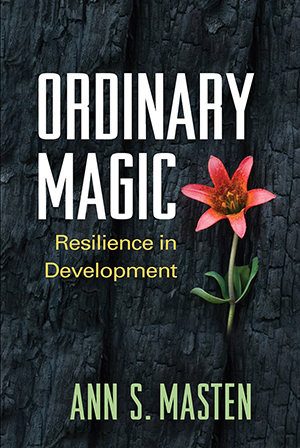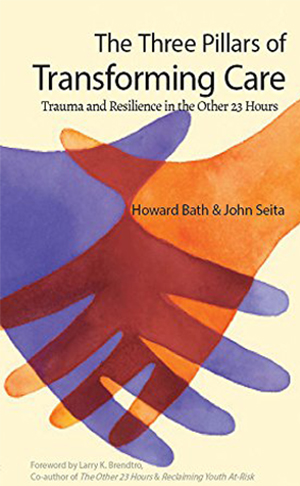Pioneering researcher Ann Masten presents the most authoritative synthesis of current knowledge on resilience in children and adolescents. Contrary to earlier views that resilience was a rare quality, humans by nature are resilient if reared in an environment that meets their needs. In fact, the brain has programs for resilience including attachment, mastery, self-efficacy, and spirituality through purpose in life. These correspond to biosocial growth needs which are universal across cultures. When children lack supportive relationships, they are at risk, and adverse circumstances, such as poverty, chronic family problems, or exposure to trauma can interfere with adaptation. Of critical importance is the ecology of development in supportive families, peer groups, schools, and communities.
Guilford Press (2015). 370 pages.
Reviews
“A truly magnificent book that is very readable, highly informative, and hugely helpful for both understanding resilience and planning how best to foster it. It skillfully summarizes the main findings from both qualitative and quantitative research and combines all of that with telling case examples. Essential reading for any researcher or clinician interested in resilience.”
—Michael Rutter, King\’s College London
“Ordinary Magic is an extraordinary achievement, integrating, synthesizing, and extending 40 years of resilience research into a compelling and highly readable volume. The book is audacious in scope, moving easily from genes to culture writ large. It is a ‘must read’ for a broad audience, including mental health practitioners, senior scholars, educators, and students.”
—Deborah Lowe Vandell, University of California, Irvine
“Masten makes a critical contribution to understanding the multiple pathways toward resilient outcomes for individuals who have experienced significant adversity. She does an amazing job of integrating literature from a variety of disciplines and levels of analysis. This is by far the best book I have ever read on resilience, and it will set the standard for a long time to come.\”
—Dante Cicchetti, University of Minnesota



